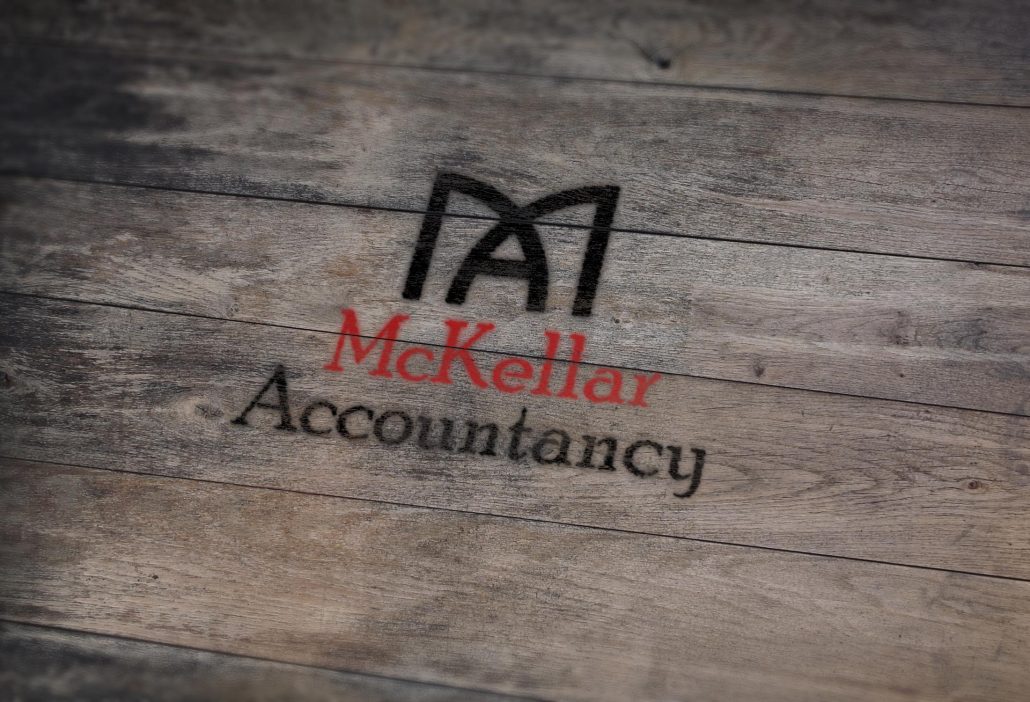[av_image src=’https://www.mckellaraccountancy.com/wp-content/uploads/2017/02/Painted-Wood-Logo-Mock-Up-dg-1500×430.jpg’ attachment=’402′ attachment_size=’featured’ align=’center’ styling=” hover=” link=” target=” caption=” font_size=” appearance=” overlay_opacity=’0.4′ overlay_color=’#000000′ overlay_text_color=’#ffffff’ animation=’no-animation’][/av_image]
[av_heading tag=’h3′ padding=’10’ heading=’McKellar Accountancy November eNews’ color=” style=” custom_font=” size=” subheading_active=” subheading_size=’15’ custom_class=”][/av_heading]
[av_textblock size=” font_color=” color=”]
In this month’s Enews we report on the Chancellor’s key announcements from the Budget and the latest guidance on a ‘No Deal Brexit’.
HMRC has also announced the pilot is open for Making Tax Digital for VAT, but the deferral of the start date for some. With the latest guidance for employers, there is lots to update you on.
Article Index
- Budget 2018
- Personal tax changes – allowance and basic rate band increases
- Capital allowances changes
- Entrepreneurs’ Relief changes
- Making Tax Digital for VAT public pilot opens and deferral for some businesses
- New guidance for employers
- HMRC countdown: file your tax return
- Further contingency planning guidance on a ‘No deal Brexit’
Budget 2018
The Chancellor Philip Hammond presented his second Autumn Budget on Monday 29 October 2018. In his speech he stated that ‘austerity is coming to an end – but discipline will remain’. He also promised a ‘double deal dividend’ if the Brexit negotiations are successful but stated that there may be a full-scale Spring Budget in 2019 if not.
We have included separate articles on some of the key announcements.
We will keep you informed of developments.
Internet link: GOV.UK Budget 2018
Personal tax changes – allowance and basic rate band increases
At the Budget, the Chancellor announced that increases to the personal allowance and basic rate band for 2019/20.
The personal allowance is currently £11,850. The personal allowance for 2019/20 will be £12,500. Also for 2019/20, the basic rate band will be increased to £37,500 so that the threshold at which the 40% band applies is £50,000 for those who are entitled to the full personal allowance. The additional rate of tax of 45% will remain payable on taxable income above £150,000.
The government had pledged to raise the thresholds to these levels by 2020/21.
Internet link: GOV.UK income tax
Capital allowances changes
A number of changes to capital allowances were announced at the Budget, including an increase in the Annual Investment Allowance (AIA), for two years to £1 million, in relation to qualifying expenditure incurred from 1 January 2019. The AIA is currently £200,000 per annum. Complex calculations may apply to accounting periods which straddle 1 January 2019.
Other changes to the rules include:
- a reduction in the rate of writing down allowance on the special rate pool of plant and machinery, including long-life assets, thermal insulation, integral features and expenditure on cars with CO2 emissions of more than 110g/km, from 8% to 6% from April 2019. Complex calculations may apply to accounting periods which straddle this date
- clarification as to precisely which costs of altering land for the purposes of installing qualifying plant or machinery qualify for capital allowances, for claims on or after 29 October 2018
- the end of the 100% first year allowance and first year tax credits for products on the Energy Technology List and Water Technology List from April 2020
- an extension of the current 100% first year allowance for expenditure incurred on electric charge-point equipment until 2023.
In addition, a new capital allowances regime will be introduced for structures and buildings. It will be known as the Structures and Buildings Allowance and will apply to new non-residential structures and buildings. Relief will be provided on eligible construction costs incurred on or after 29 October 2018, at an annual rate of 2% on a straight-line basis.
Internet link: GOV.UK Budget 2018
Entrepreneurs’ Relief changes
The government announced, as part of the Budget, that some changes are being made to the rules for Entrepreneurs’ Relief (ER) with immediate effect for disposals on or after 29 October 2018. Two new tests are to be added to the definition of a ‘personal company’, requiring the claimant to have a 5% interest in both the distributable profits and the net assets of the company. The new tests must be met, in addition to the existing tests, throughout the specified period in order for relief to be due. The existing tests already require a 5% interest in the ordinary share capital and 5% of voting rights.
Minimum qualifying period
The government will legislate in Finance Bill 2018-19 to increase the minimum period throughout which certain conditions must be met to qualify for ER, from one year to two years. The measure will have effect for disposals on or after 6 April 2019 except where a business ceased before 29 October 2018.
Where the claimant’s business ceased, or their personal company ceased to be a trading company (or the holding company of a trading group) before 29 October 2018, the existing one year qualifying period will continue to apply.
Dilution of holdings below 5%
Draft legislation has already been issued to provide a potential entitlement to ER where an individual’s holding in a company is reduced below the normal 5% qualifying level (meaning 5% of both ordinary share capital and voting power). The relief will only apply where the reduction below 5% occurs as a result of the company raising funds for commercial purposes by means of an issue of new shares, wholly for cash consideration.
Where a disposal of the shareholding prior to the issue would have resulted in a gain which would have qualified for ER, shareholders will be able to make an election treating them as if they had disposed of their shares and immediately reacquired them at market value just before dilution. To avoid an immediate CGT bill on this deemed disposal, a further election can be made to defer the gain until the shares are sold. ER can then be claimed on the deferred gain in the year the shares are sold under the rules in force at that time.
The new rules will apply for share issues which occur on or after 6 April 2019.
Please contact us if you would like further information on how this may affect you.
Internet link: GOV.UK ER
Making Tax Digital for VAT public pilot opens and deferral for some businesses
HMRC has opened the Making Tax Digital for VAT (MTDfV) public pilot. However certain VAT-registered businesses (around 3.5% according to HMRC) with more complex requirements will be deferred from being subject to MTD for six months.
Essentially, the public pilot is now open to sole traders and companies using standard VAT accounting. This applies whether returns are done monthly or quarterly provided they are up to date. Those signing up for the pilot will be required to keep their VAT records digitally from the first day of the period covered by their next VAT Return and submit their return using the appropriate software.
Further piloting plans
HMRC intends to roll out further pilots for partnerships, those that trade with the EU and users of the Flat Rate scheme as set out in the timetable.
| Date | Activity |
| Late 2018 | Private testing begins with partnerships, those customers that trade with the EU, and users of the Flat Rate Scheme. |
| Late 2018 / early 2019 | Open to other sole traders and companies who are not up to date with their VAT and businesses newly registered for VAT that have not previously submitted a VAT return. |
| Early 2019 | Open to partnerships and those taxpayers that trade with the EU. |
Six months’ deferral
Making Tax Digital for VAT is to be introduced from 1 April 2019. However, HMRC has announced that the mandated implementation has been deferred until 1 October 2019 for certain taxpayers:
- trusts
- ‘not for profit’ organisations that are not set up as a company
- VAT divisions
- VAT groups
- public sector entities required to provide additional information on their VAT return (Government departments, NHS Trusts)
- local authorities
- public corporations
- traders based overseas
- those required to make payments on account (very large traders)
- Annual Accounting Scheme users.
Pilot testing for these groups is expected to open in Spring 2019. For help with MTD please contact us.
Internet links: GOV.UK MTD overview MTD timeline
New guidance for employers
HMRC has issued the October 2018 Employer Bulletin which contains a number of articles relevant to employers on payroll related issues.
The articles cover a number of areas including:
- clarification of the rules regarding paying employees when the regular payday is a non-banking day
- dealing with PAYE Settlement Agreements and new procedures to accommodate Scottish income tax rates
- Construction Industry Scheme reminders for contractors
- an update on the Welsh rates of income tax (WRIT) and new tax codes for Welsh taxpayers
- guidance on the correct pay rates for apprentices
- how to apply for advance statutory payment of Maternity, Parental, Paternal or Adoption Pay
- spotlight on umbrella companies
- Real Time adjustments to tax codes and their timing
- closure of childcare vouchers and directly contracted childcare to new entrants from 4 October 2018
- Disguised Remuneration Loan Charge – reporting requirements and
- improving the wellbeing of your employees
For help with payroll matters please contact us.
Internet link: Employer Bulletin
HMRC countdown: file your tax return
With less than 100 days until the self assessment tax return deadline of 31 January 2019, HMRC is urging taxpayers to complete their tax returns early, in order to avoid the last minute rush.
The deadline for submitting 2017/18 self assessment tax returns online is 31 January 2019. An automatic penalty of £100 applies if the return is late.
HMRC advise that last year, more than 11 million taxpayers completed a 2016/17 Self Assessment tax return, with 10.7 million completing on time. There were 4,852,744 taxpayers who filed in January 2018 (44.8% of the total), and 758,707 on 31 January, the deadline day.
HMRC is advising taxpayers not to leave the completion of their 2017/18 Self Assessment tax until the last minute.
Angela MacDonald, HMRC’s Director General for Customer Services, said:
‘The deadline for completing Self Assessment tax returns may be 100 days away, yet many of us wait until January to start the process. Time flies once the festive period is underway, yet the ‘niggle’ to file your tax return remains.’
‘We want to help people get their tax returns right – starting the process early and giving yourself time to gather all the information you need will help avoid the last minute, stressful rush to complete it on time. Let’s beat that niggle.’
Contact us for help with your self assessment tax return.
Internet link: GOV.UK news
Further contingency planning guidance on a ‘No deal Brexit’
HMRC has issued a Partnership Pack to help businesses carry out contingency planning and to help their customers, members and clients to:
- think about how they will need to adapt their business to comply with new systems, processes and controls
- assess the impact of the increased demand for customs declarations on their business
- consider whether they need to recruit and train additional staff
- stay up-to-date with these changes
Meanwhile the Confederation of British Industry (CBI) reports that ‘patience is now threadbare’ amongst UK businesses in regard to the government’s progress in its Brexit negotiations with the EU.
A survey, carried out by the CBI, revealed that 80% of firms believe that Brexit uncertainty is having a ‘negative impact’ on their investment decisions. The majority of businesses polled stated that they may have to implement ‘damaging’ contingency plans if no further progress is made by December.
Carolyn Fairbairn, Director General of the CBI, said:
‘The situation is now urgent. The speed of negotiations is being outpaced by the reality firms are facing on the ground.
‘Unless a Withdrawal Agreement is locked down by December, firms will press the button on their contingency plans. Jobs will be lost and supply chains moved.’
‘As long as ‘no deal’ remains a possibility, the effect is corrosive for the UK economy, jobs and communities.’
Internet links: GOV.UK partnership pack CBI news
[/av_textblock]
[av_social_share title=’Share this entry’ style=” buttons=” share_facebook=” share_twitter=” share_pinterest=” share_gplus=” share_reddit=” share_linkedin=” share_tumblr=” share_vk=” share_mail=”][/av_social_share]







